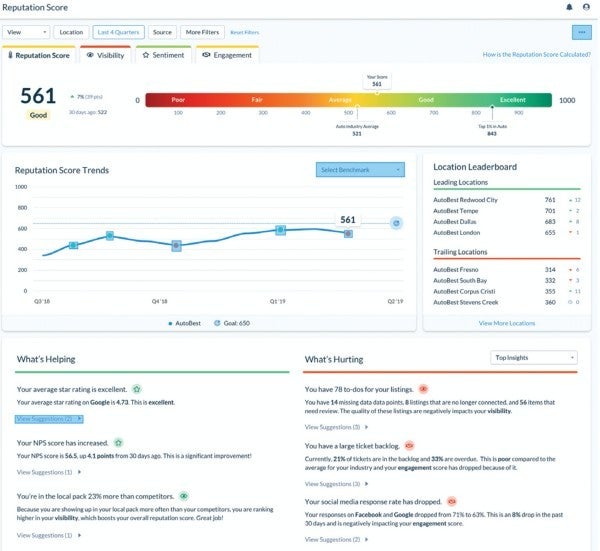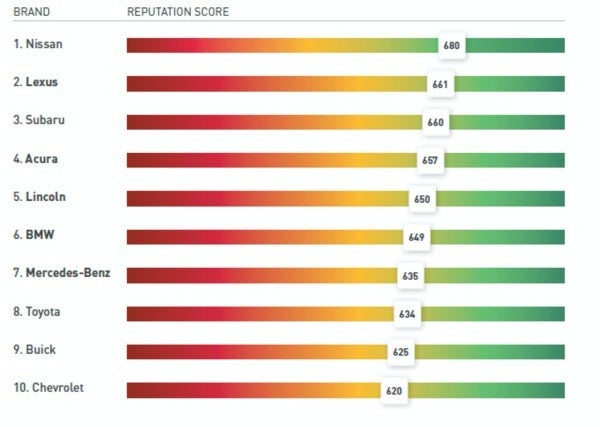We Analyzed Over 16,000 U.S. Dealerships: Here’s What We Found
Reputation Staff Writer

S&P’s Global Ratings Report shows revenue growth declining by about 1.2% year over year, as a result of numerous factors: sluggish sedan sales, rising interest rates and a lack of available auto credit, to name a few. OEMs and dealerships will need to rely more heavily on revenue from fixed operations service centers and used car sales to make up for the decline. And that’s where reputation management becomes critical. Ranking high and showcasing great reviews in local search will be essential for building consumer trust and driving foot traffic.
Let’s take a look at the report’s key findings:
1. The automotive industry has a better reputation than most. When compared to other industries such as retail, healthcare, finance and real estate, the automotive industry is looking pretty good. It has an average score of 603 and an average star rating at 4.3. These stats mean many automotive dealers and OEMs have done a nice job so far of maximizing opportunities to generate positive reviews, improve their search rankings and engage with customers. They’re also smart about leveraging feedback across multiple sources to improve CX at the brand and local levels.

2. You should aim for a score of 880 or higher to be competitive. If your score was below 880 as of January this year, you had no chance of making the Top 100 list. Leading dealerships are serious about service and CX, and they monitor their reputation closely. If you’re not actively managing your reputation, you’re losing business to brands and dealerships that are.
3. OEMs and dealerships score high on customer engagement. The average engagement score for all OEM brands in our study was 65%, and dealerships aren’t far behind. That’s a lot higher than businesses in other industries such as retail and financial services. Still, we recommend responding to 100% of negative reviews and at least 20% of positive reviews, because it demonstrates a commitment to CX and shows you’re paying attention to feedback.
4. Nissan and Lexus know what they’re doing. These two brands have held the top two spots since last year, although they switched places. They score high across all sales and service categories. A combination of high visibility, sentiment and engagement scores contribute to their rankings.

5. Luxury brands are on point. Lexus, Acura, Lincoln, BMW and Mercedes-Benz are in the top 10. They all had star ratings of 4.4 or above for both sales and service categories, which include sales competence, service competence, sales, salesperson, service advisor and speed.
So why all the fuss about the score? There’s a strong correlation between these scores and sales. In fact, improving your score by just 150 points has been known to generate a 10% increase in auto sales. OEMs and dealers looking to improve their rankings should pay swift and consistent attention to all aspects of reputation management, or get left behind.
Get a full copy of the report. Download our 2020 Automotive Reputation Report today.